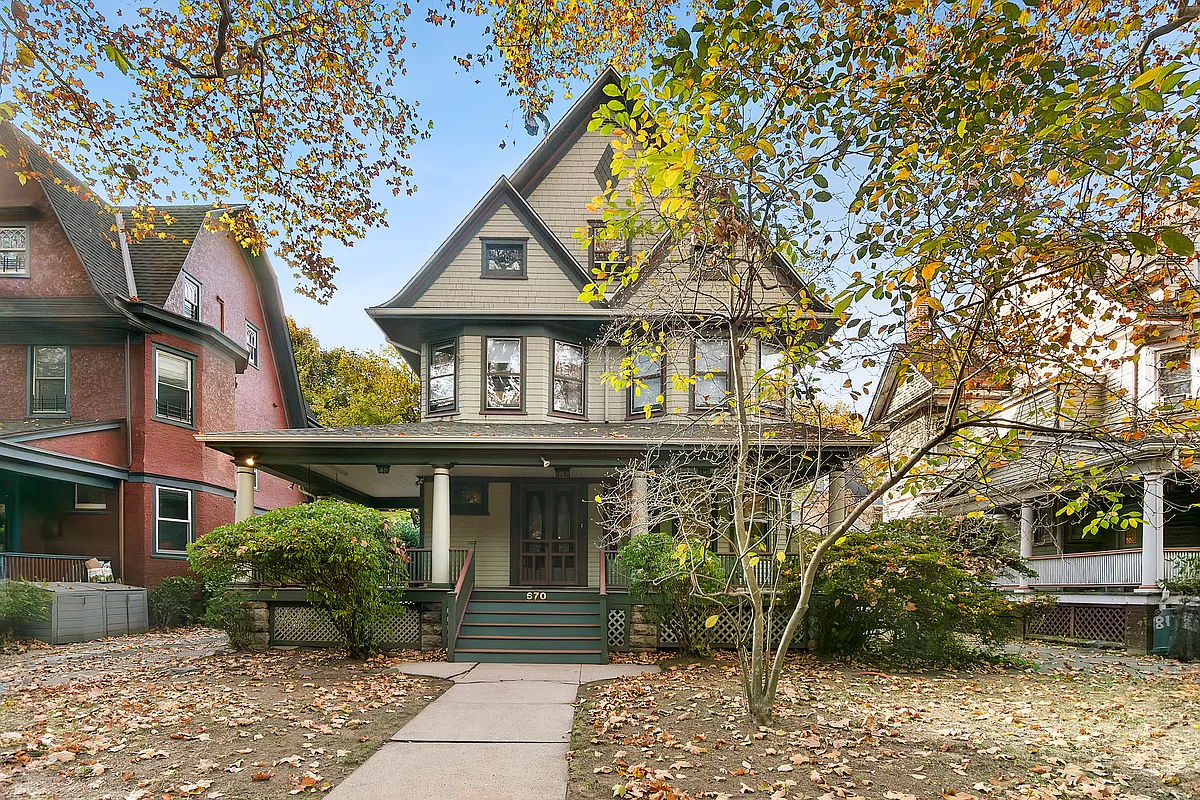Fort Greene Co-Op Chooses Toiling
Despite the low-pitched groan that emanates from the Park Slope Food Co-op due to compulsory work slots, the impending Fort Greene co-op has chosen to follow Park Slope’s model. The Brooklyn Paper reports that every member of the Greene Hill Co-op will work a shift in exchange for discounted organic groceries, though they’re in favor…


Despite the low-pitched groan that emanates from the Park Slope Food Co-op due to compulsory work slots, the impending Fort Greene co-op has chosen to follow Park Slope’s model. The Brooklyn Paper reports that every member of the Greene Hill Co-op will work a shift in exchange for discounted organic groceries, though they’re in favor of a less strict policy than Park Slope’s, which has members work two shifts if they miss one. Can’t have community unless all folks participate, they decided. Now they just need to find a space.
Workers of the Co-op Unite [Brooklyn Paper]
PSFC Produce. Photo by bluesage.









I quit the Park Slope food coop after too many shifts of working check out and seeing one shopper after another buying enough food for 12 people at once.
The coop really doesn’t make economic sense if you are a single person household–the “cost” of your mandatory labor works out to be a much larger proportion of your shopping bill than if you are a couple with two or three (or more) kids.
(Not to mention the casual fraud of coop members shopping for more people than they are supposed to.)
During my coop stint, I’d end up buying too much food at once, partly to justify that I was working for it, and partly because it takes so damn long to shop and check out there that you don’t want to go through the process more than once a week.
Food that dies in your fridge before you can eat it is no bargain.
combustiblegirl 2- excellent post.
Are the checkout lines really that long?? Speaks to management issues.
I grew up in Ithaca, the land of the Greenstar Food Co-op and the now defunct Somadhara Bakery (a.k.a. Somewhat Horrible to us hippies’ kids). And even Greenstar has a two-tiered system in which you get a discount if you choose to work. While I recognize that people consider the work requirement fun or community building, I leave the house at 8:30 a.m. and get home at 8 p.m., so the weekends are valuable time that frankly I’d rather spend with my husband
or friends. I’m happy to pay more and have someone who has more time and can work pay less. A two-tiered system seems more inclusive and community oriented to me.
Union Market is great, but it’s also 6 bucks for a bunch of asparagus.
It would be $2 at the Co-op.
No, the Park Slope Food Co-op does not have a two-tier system where those who would rather not work can pay higher prices. It’s one of the few food co-ops in the country with such a restrictive policy. When Park Slope was less affluent, and the Co-op was smaller, it made sense to require everyone to work. Now, with 15,000+ members, the work requirement is a joke: lots of the “jobs” aren’t jobs at all, and lots of superfluous “workers” just hang out for their three-hour work shift once a month since there really isn’t THAT much work to be done.
I was a member years ago, when I made less money and when it was more difficult to find organic produce in the neighborhood. Now, with the Greenmarket and Union Market and Fairway, with Trader Joe’s on the way, not to mention the fact that you can’t just dash into the Co-op to buy a quart of milk without waiting in line for an hour … membership doesn’t make sense to me anymore, nor do the required work shifts and totalitarian “consensus” politics. However, I’d gladly pay higher prices if I could shop there without working a monthly shift (assuming, again, I could find a time of day when it wasn’t too crowded, which might actually be an argument AGAINST letting non-members, or non-workers, shop there).
I think this thread has convinced me to join.
Benson,
First, I’m a he not a she, no worries. I hear your argument, and if it works for you, great. But I live a block away and there’s the convenience aspect. Second, my shift is on a Saturday morning, I’m not forgoing any income earning opportunity. The trade-off in value is only whether I sleep in or not.
I hope more people don’t join, its too successful already (i.e. too crowded). Many people, those with MBA’s and PhD’s and those w/o have come to the educated conclusion that yes, the 2.5hrs a month is indeed worth it for the price/quality/convenience.
Z;
One other point, to add to what DIBS said. If you are talking about a person for whom $100/hour (post tax) is attractive, that person will not likely be taxed at a marginal rate of 50%, as you assumed in your analysis. The marginal rate of 50% applies for folks making about $200K or over,and for a person of such means, the COOP makes no economic sense.